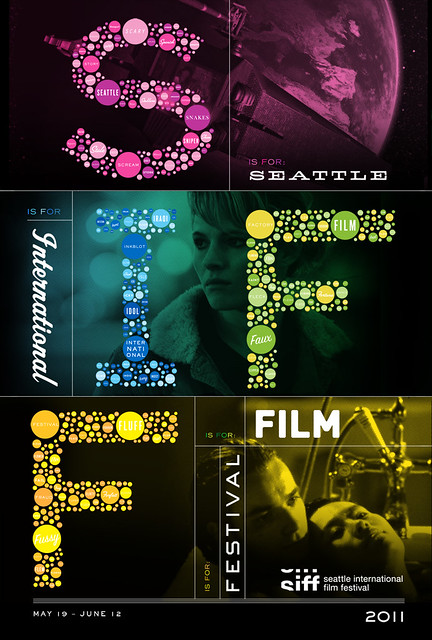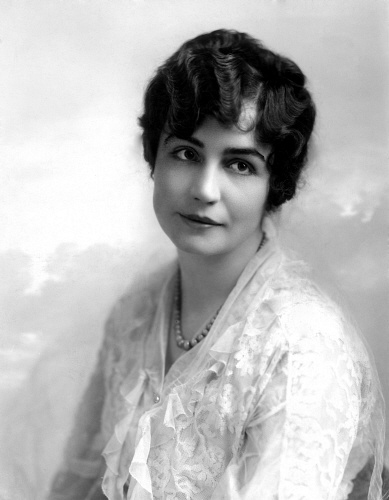 Yesterday, Jon treated me to an afternoon at the movies—with a bag of popcorn and everything! We saw the documentary These Amazing Shadows, which is part of the 2011 Seattle International Film Festival line-up.
Yesterday, Jon treated me to an afternoon at the movies—with a bag of popcorn and everything! We saw the documentary These Amazing Shadows, which is part of the 2011 Seattle International Film Festival line-up.It's interesting how very rarely I talk about movies on here, because out of everything I've ever been interested in my whole life, movies are what I know and talk the most about. Having had a film-obsessed father (I remember celebrating his 4,000th movie viewing with a screening of Meet the Fockers when I was 18), my sister and I did very little else growing up; we even became known among our friend group as the go-to movie-encyclopedia kids (this was before there was Google in everyone's pocket, of course).
When my interests expanded in college, I stopped going to the movies several times a week, which meant I stopped writing about it too. Now, mostly because of how expensive it is, I'm lucky to go see a movie in theaters once a month! So, yeah... this was a treat.
These Amazing Shadows could very easily have been a Turner Classic Movies interlude that gets shown between Mr. Smith Goes to Washington and Duck Soup on a Saturday afternoon—and that isn't necessarily a bad thing. The film talks about the creation and subsequent purpose of the National Film Registry, which was introduced through Congress in the late-80's as a way of preserving films of "cultural, historical and aesthetic significance," and was sparked by Ted Turner's colorful-bastardization of classic B&W films. (Read more about his dickery here.) 25 films a year are chosen to be added to this prestigious list, they must be at least 10 years old to qualify, and include feature length films, shorts, cartoons and newsreels, home movies and documentaries.
I mean, even this little gem of a video is included, ya'll.
Sometimes it's helpful to have a reminder of how magical art can be. In the back of my mind, the power and sway that certain films have had over me is always something I feel and remember: when I saw Brokeback Mountain and was struck dumb-silent by a film for the very first time; after seeing In the Bedroom and realizing the difference between disliking a movie and thinking something is bad; recognizing absolute perfection in acting and film-making with On the Waterfront; and finally understanding the necessity of balance between performance, writing, cinematography, music and directing, thanks to American Beauty. These movies and a thousand more have influenced me. Watching These Amazing Shadows was able to remind me once again. It's a humorous, emotional, and educational look at something positive that's come out of paying taxes. When it shows up on Netflix, watch it.
OK, I'm gonna shift directions really quickly here. Careful, no whiplash, please.
Did you also know that she directed very controversial films with topics ranging from birth control and abortion to drug addiction?? Did you know that she started her own film production company and then eventually lost everything and "died penniless"??
I DIDN'T KNOW ANYTHING OF THIS! I have been studying film for years and didn't watch anything but old B&W movies until I was 12, and neither Jon nor I have ever heard of this woman or her films. HOW CAN THIS BE??
Just reading her Wikipedia page (what there is of it) makes me wonder how this woman's life hasn't already been made into a movie! What an incredibly inspiring, tragic, and monumental story this could be! (Jon and I have decided that Michelle Williams should definitely play her.) And, for some reason, the only biography about her costs upwards of $125 on Amazon!
I'm not generally preachy when it comes to feminism, but the bad rap of female writers and directors in film is just sad, you guys. To think that Hollywood started off so equal and unbiased when it came to gender, then BAM! the 1930's hit and all successful women working in film went from the director's chair to the director's couch (if you catch my drift). Imagine the contributions women could have made to film in the so-called "Golden Age of Hollywood" if they'd been taken seriously, as they once were!
Sigh. Alright, rant over.
But really, am I the only one really surprised by this? Maybe Jon and I are just idiots and have been living in misogynistic male-entrenched gutters all our lives, but seriously... Is the success of women in early film as big o' news to you as it is to me?


I had never heard of this woman either. Her name seems vaguely familiar, but looking at her body of work, I see no reason why I would know her. I've never seen a single one of her films, and considering the mass volume of film history/theory classes I've taken, I'm shocked she was never discussed.
ReplyDeleteIt's so surprising how tossed aside certain significant figures are. How they become forgotten so quickly, and disappear from the consciousness before they even pass away. Makes me really sad. But it's nice to know she is alive again on the interweb, even if just because of this lil' entry. =)